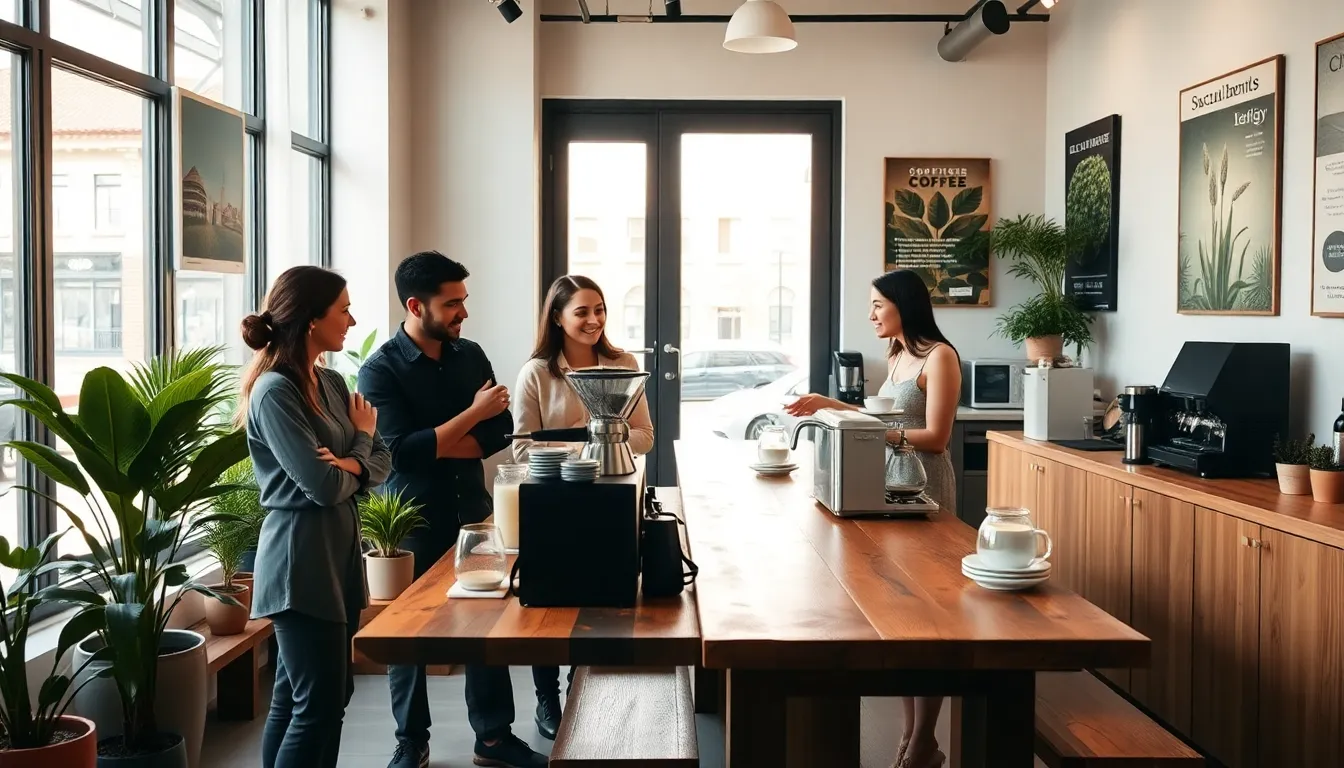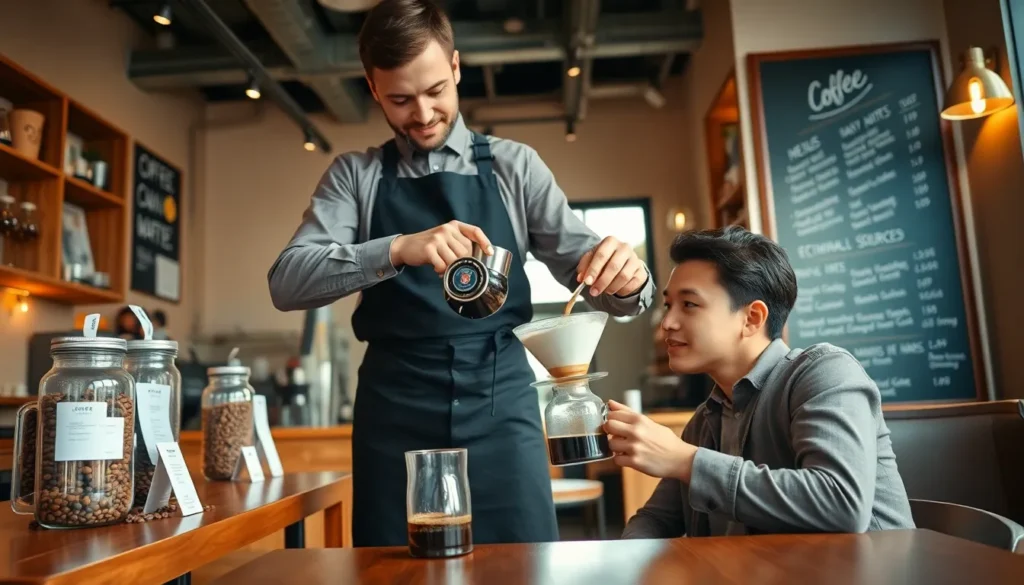Table of Contents
ToggleCoffee isn’t just a drink: for many, it’s a lifestyle. Counter culture coffee takes that idea and kicks it into high gear. Imagine sipping a brew that’s not only delicious but steeped in rich history, community impact, and bold flavors. It’s the kind of coffee that rebels against mediocrity, embracing uniqueness in every cup. Ready to explore the best counter culture coffee out there? Let’s immerse and discover what makes these beans a cut above the rest.
Understanding Counter Culture Coffee

What Defines Counter Culture Coffee?
Counter culture coffee represents more than just a beverage. It embodies a movement prioritizing sustainability, ethical sourcing, and plenty of creativity. Unlike your average cup of joe, counter culture coffee is about challenging the status quo. These cafés and brands focus on where their beans come from, often partnering with small farmers who practice sustainable agriculture. The result? A product that tastes as good as it feels to drink.
The History and Evolution of Counter Culture Coffee
The journey of counter culture coffee began in the late 20th century, as coffee enthusiasts sought higher quality and ethically sourced beans. The rise of specialty coffee shops introduced consumers to unique brewing methods and a rich variety of flavors. Brands like Counter Culture Coffee emerged, paving the way for an appreciation of coffee that celebrates both craftsmanship and ethical practices. As consumers became more aware of their coffee choices, the evolution towards quality, sustainability, and innovation took center stage.
Top Counter Culture Coffee Brands
1. Brand A: Unique Offerings and Flavors
Brand A stands out for its eclectic range of offerings. They source beans from exotic locales, creating blends that are both intriguing and flavorful. If you’re after a coffee experience that takes your taste buds on a journey, look no further. Their limited edition flavors often spark curiosity and delight coffee lovers around the globe.
2. Brand B: Sustainable Practices and Quality
Brand B has built a reputation on its commitment to sustainability. They not only provide high-quality beans but also ensure that their sourcing methods benefit the communities involved. This brand often collaborates with local farmers, supporting fair trade and eco-friendly practices. Drinking their coffee feels good, knowing it supports a better tomorrow.
3. Brand C: Community Impact and Innovation
Brand C takes a different approach by focusing on community impact. Their coffee isn’t just a product: it’s a way to inspire change. By incorporating innovative brewing methods and engaging local baristas, they create a collaborative atmosphere that enhances the coffee culture. Their passion resonates through every sip, making it more than just a drink.
Coffee Preparation Methods for Counter Culture Brews
Brewing Techniques to Enhance Flavor
To truly appreciate counter culture coffee, one must understand the art of brewing. Different techniques, such as pour-over, French press, or AeroPress, bring out varying flavor notes. Pour-over allows for a clean, crisp tasting experience that highlights the bean’s complexity, while French press creates a richer body, perfect for those who enjoy depth in their cup. Experimenting with these methods can lead to delightful discoveries.
The Role of Equipment in Coffee Quality
Quality equipment is paramount in achieving the perfect cup. Investing in a good grinder and brewing tools can significantly elevate the final brew. Freshly ground beans release essential oils that contribute to flavor, and water quality should not be overlooked. Temperature and brewing time also play crucial roles. A well-timed extraction can mean the difference between a mediocre cup and an unforgettable one.
Pairing Food with Counter Culture Coffee
Perfect Pairings for Coffee Lovers
Food pairings can significantly enhance your coffee experience. A nutty brew often pairs wonderfully with chocolate or pastry, while fruity coffees shine next to fresh fruits or light cheeses. Experimenting with different combinations can pleasantly surprise even the most seasoned coffee connoisseur.
Exploring Regional Traits of Counter Culture Coffee
Understanding regional traits of counter culture coffee allows for even more nuanced pairings. For instance, a Latin American coffee might have citrusy notes, making it ideal for tropical fruit dishes. Meanwhile, African coffees often exhibit berry flavors, pairing beautifully with dark chocolate desserts. Exploring these pairings elevates both the food and coffee, providing a harmonious experience.



